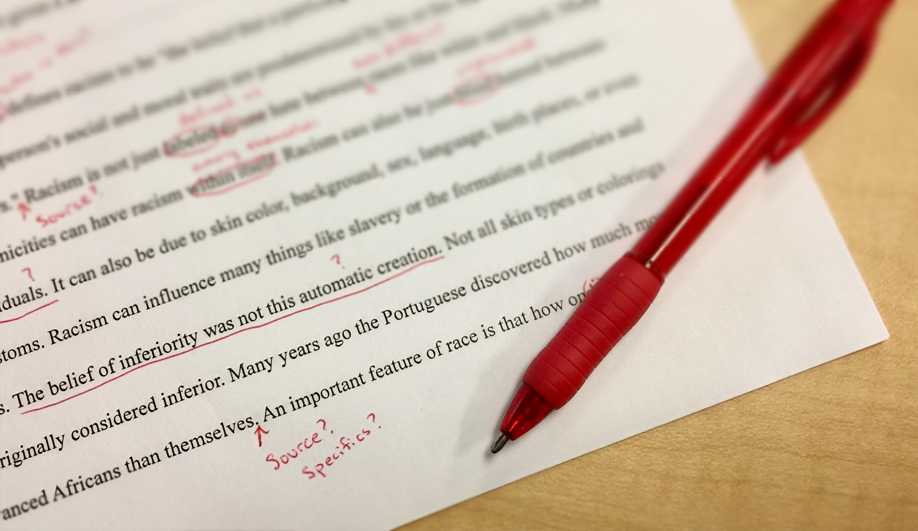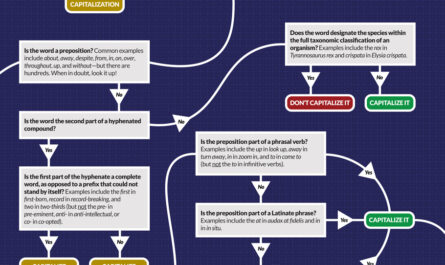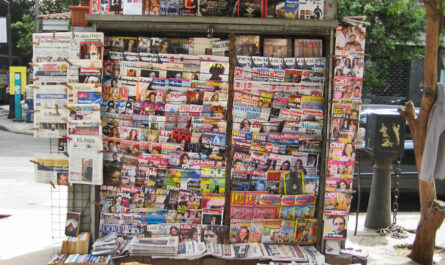
On their debut album My Solo Project, indie darlings Mates of State sing,
I color the sky with you
I let you choose the blue
The lyrics may be open to interpretation, but the song’s title speaks for itself:
Everyone needs an editor.
It’s the phrase that springs to mind when I spot errors that—although they’re easy to miss—give otherwise professional communications an air of sloppiness.
Whether it’s a press release with a hyphen in the proper place of a dash or a billboard that uses a single open quote instead of an apostrophe, these all-too-common errors detract from the message you’re trying to convey and discredit you as a speaker. But this is only the beginning of the problems a freelance editor can address.
What do editors do?
A freelance editor will do much more than simply catch your typos; they can play a role at every stage of the writing process, whether your message is as short as a slogan or as long as a book. Clear, precise communications don’t happen by accident! A professional editor and writer will help you to:
DEVELOP your message, refining and prioritizing your ideas
STRATEGIZE ways to effectively communicate your message to an audience
CREATE original content with an original and compelling voice
PERFECT the delivery of your message down to the very last comma
Editors and writers can help you to perform original research, decide which ideas are the most important, and organize your message in a way that effectively communicates all the points you’re hoping to convey.
Striking the right balance between simplicity and nuance requires skill and experience. It’s an editor’s job to understand your audience’s level of proficiency, then tailor the complexity of your ideas (and the language you use to communicate them) to that audience.
Besides correcting every last grammatical and spelling mistake (accounting for regional differences and house style), copy editors also improve the way ideas are expressed, making them easier to understand, more accurate, and more engaging.
Working with a layout, editors can also spot typographical mistakes like text misalignment, page numbering errors, inconsistent use of typefaces, inconsistent formatting of headers and menus, and much more.
How does it work?
Every project is different. An editor’s job is to work with what you have and fill in the gaps. Usually, an editor will begin with an interview to determine exactly what your needs are—even if you don’t know what they are yourself—and develop a structure and schedule that works for everyone.
Depending on the job, the first deliverable might be a polished first draft, or it might be an outline that lists all the information you’re hoping to include, organized to create a logical hierarchy and flow of ideas. Where there are holes, an editor can help you develop ways to complete the picture.
How much does it cost?
The fee a freelance editor or writer will charge varies depending on the client and the type of work involved. For some projects, an hourly rate will make the most sense; for others, a flat rate. Typically, non-profits can expect a discounted rate, as compared to corporate or marketing clients. But in every case, an editor should be able to provide you with a quote up front.
No job is too small! By billing in less-than-hourly increments, an editor can consult on texts as short as a single tweet, newsletter, title, or website header. It takes only a few minutes to run these short items by an editor—which keeps the fee nominal—but it can make an enormous difference to the final product and the image you project.
Questions? I’m happy to answer them!



